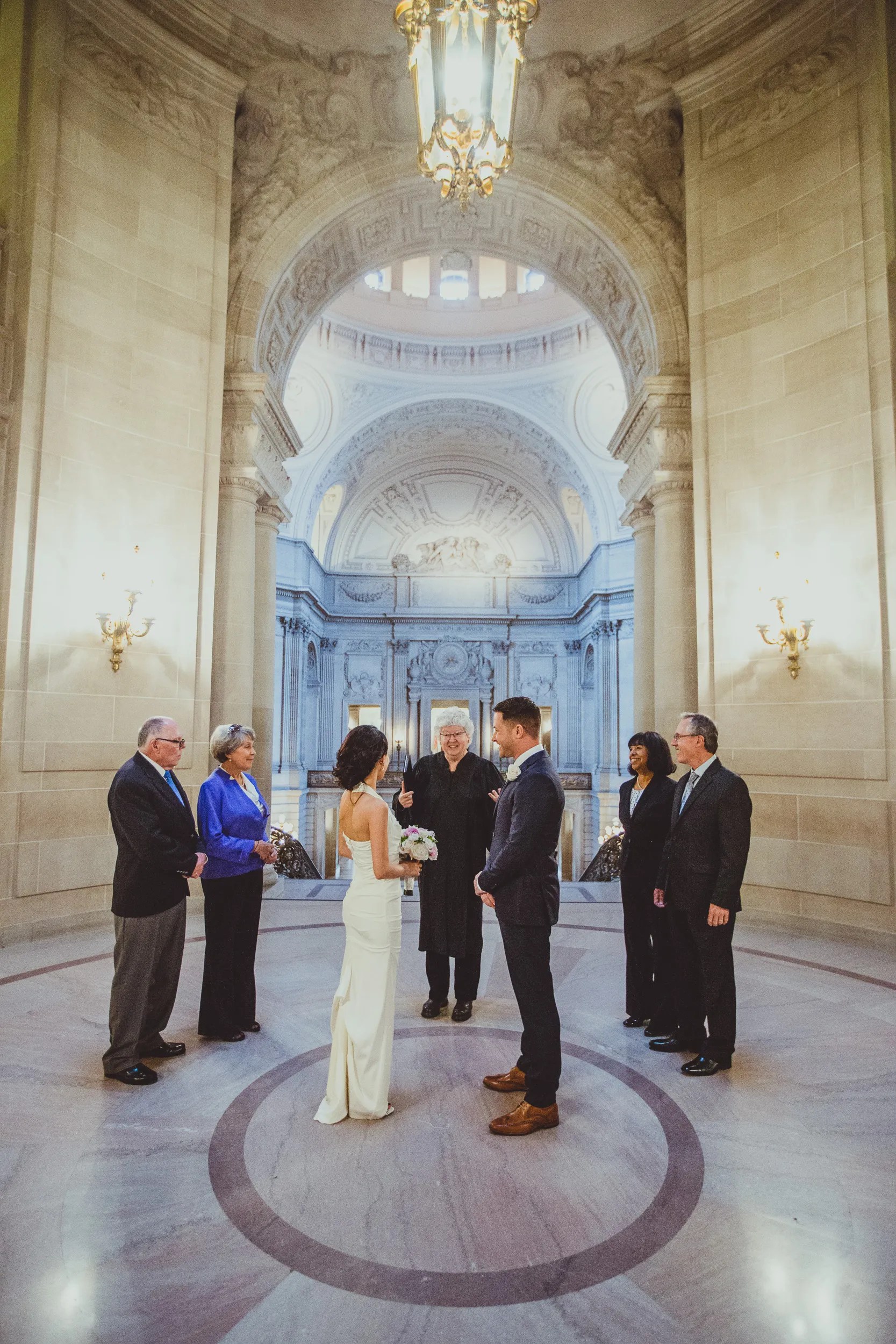Officiating Your First Wedding Navigating the Ceremony
Stepping up to officiate a wedding for the first time is a huge honor, a gesture of deep connection to the couple. It's also a significant undertaking. The pressure to deliver a seamless, meaningful ceremony can feel immense, especially when you're navigating this terrain for the first time. This guide offers a roadmap for first-time officiants, providing essential wedding ceremony advice and guidance.
Taking on the role of officiant isn't just about showing up on the day; it's about understanding the legal and logistical landscape, crafting a ceremony that resonates with the couple's unique story, and projecting the necessary confidence and gravitas. Where do you even begin? From obtaining proper authorization to managing stage fright, there's a lot to consider.
The tradition of having a designated officiant dates back centuries, evolving with societal and religious customs. Understanding this historical context adds depth to the role. Initially, ceremonies were often primarily religious rites, led by clergy. Over time, secular ceremonies and the role of a friend or family member as officiant gained popularity, creating a need for guidance and resources for those unfamiliar with the process.
Officiating advice is crucial to ensuring the ceremony is legally binding and emotionally resonant. Without proper preparation, there's a risk of missing essential legal steps, creating a disorganized flow, or not capturing the couple's unique narrative. These missteps can diminish the overall experience and create unnecessary stress for everyone involved.
One of the first steps is to understand the specific legalities in the location where the wedding will take place. Each state or region has its own set of rules regarding who can legally officiate a marriage. This typically involves registering with the relevant authorities and understanding the requirements for submitting the marriage license after the ceremony.
The core of officiating advice revolves around understanding the couple's vision for their wedding. Open communication is paramount. Discussions about their love story, their values, and what they envision for the ceremony itself provide invaluable insights for crafting a personalized and meaningful experience.
For example, the couple may want a traditional ceremony with religious readings or a more modern, secular approach. They might opt for personalized vows or prefer traditional wording. Understanding their preferences is crucial for tailoring the ceremony accordingly.
A well-structured ceremony typically includes an introduction, readings, the exchange of vows, the pronouncement of marriage, and the introduction of the newly married couple. Each element can be customized to reflect the couple's personality and wishes.
Three key benefits emerge from good officiating advice: First, it minimizes the risk of legal issues that could invalidate the marriage. Second, a well-planned ceremony enhances the overall experience for the couple and their guests, creating a memorable and emotionally resonant event. Third, adequate preparation instills confidence in the officiant, allowing them to deliver a smooth and polished performance.
Crafting the ceremony involves selecting appropriate readings, music, and rituals. Work with the couple to choose readings that resonate with their values and love story. Music can set the mood and create a sense of occasion. Rituals like a unity candle or sand ceremony can symbolize the couple's joining together.
A step-by-step guide includes: 1) Confirming legal requirements; 2) Meeting with the couple; 3) Drafting the ceremony script; 4) Rehearsing; 5) Performing the ceremony.
Advantages and Disadvantages of Officiating a Wedding
| Advantages | Disadvantages |
|---|---|
| Deeply personal and meaningful | Significant responsibility and potential stress |
| Opportunity to contribute to a special event | Time commitment for preparation and the ceremony itself |
Best Practices: 1. Practice your delivery. 2. Maintain eye contact. 3. Speak clearly and with appropriate volume. 4. Dress appropriately. 5. Arrive early to ensure everything is in place.
Real Examples: A friend officiated a beach wedding incorporating sand from the couple's favorite beaches. A family member included personal anecdotes in a heartfelt ceremony. A colleague used humor and warmth to celebrate a couple's shared love of travel.
Challenges and Solutions: Forgetting the script (solution: use cue cards). Technical issues with the microphone (solution: have a backup). Unexpected emotional reactions from the couple or guests (solution: pause and offer support).
FAQ: Who can officiate a wedding? How do I become ordained? What should I wear? How long should the ceremony be? Can I personalize the vows? What if I make a mistake? How do I handle unexpected interruptions? What are some good resources for writing vows?
Tips: Project your voice. Pause for emphasis. Smile warmly. Be present and engaged.
Officiating a wedding is a remarkable privilege. By embracing the advice and resources available, first-time officiants can navigate the process with confidence and grace. Thorough preparation, open communication with the couple, and a focus on creating a personalized and meaningful experience are key to delivering a memorable ceremony that honors the couple's commitment. Take the time to understand the legal aspects, practice your delivery, and embrace the opportunity to contribute to a truly special occasion. The rewards of playing such a significant role in a loved one's life are immeasurable. So, take a deep breath, embrace the moment, and celebrate the joy of love with your loved ones. This journey of officiating a wedding, though demanding, can be incredibly rewarding. The key is preparation and a genuine desire to create a special day for the couple.
The elusive 300 exploring perfect games in bowling
Elisabeth fritzl finding freedom and protecting privacy
Conquer any terrain your guide to finding the perfect f250 ford tremor for sale














